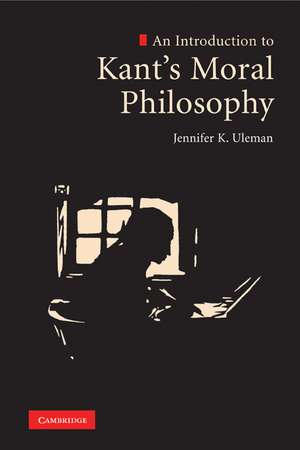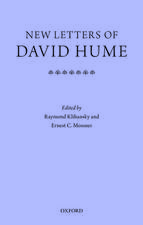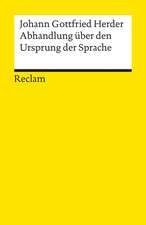An Introduction to Kant's Moral Philosophy
Autor Jennifer K. Ulemanen Limba Engleză Paperback – 20 ian 2010
| Toate formatele și edițiile | Preț | Express |
|---|---|---|
| Paperback (1) | 176.66 lei 6-8 săpt. | |
| Cambridge University Press – 20 ian 2010 | 176.66 lei 6-8 săpt. | |
| Hardback (1) | 431.21 lei 6-8 săpt. | |
| Cambridge University Press – 20 ian 2010 | 431.21 lei 6-8 săpt. |
Preț: 176.66 lei
Nou
Puncte Express: 265
Preț estimativ în valută:
33.80€ • 35.30$ • 27.91£
33.80€ • 35.30$ • 27.91£
Carte tipărită la comandă
Livrare economică 15-29 aprilie
Preluare comenzi: 021 569.72.76
Specificații
ISBN-13: 9780521136440
ISBN-10: 052113644X
Pagini: 200
Dimensiuni: 152 x 228 x 10 mm
Greutate: 0.32 kg
Editura: Cambridge University Press
Colecția Cambridge University Press
Locul publicării:Cambridge, United Kingdom
ISBN-10: 052113644X
Pagini: 200
Dimensiuni: 152 x 228 x 10 mm
Greutate: 0.32 kg
Editura: Cambridge University Press
Colecția Cambridge University Press
Locul publicării:Cambridge, United Kingdom
Cuprins
1. Introduction: the strange thing; 2. A sketch of Kantian will: desire and the human subject; 3. A sketch continued: the structure of practical reason; 4. A sketch completed: freedom; 5. Against nature: Kant's argumentative strategy; 6. The categorical imperative: free will willing itself; 7. What's so good about the good Kantian will? The appeals of the strange thing; 8. Conclusion: Kant and the good free rational will; Bibliography.
Recenzii
'Uleman consistently states her aims in each chapter clearly, organizes discussions well, and poses questions to make her train of thought easy to follow. Her grasp of the details of Kant's moral philosophy as well as of how those details hang together to form a whole is rare and impressive. This work should prove to be very helpful to many students.' Lara Denis, Agnes Scott College
'This engaging book is a wonderful introduction to Kant's moral philosophy. It explains many of Kant's central concepts, such as those of will, freedom, maxims, and imperatives, clearly and succinctly. But the book also makes an argument that must be taken seriously by every scholar as well as student of Kant: that Kant's formulations of the categorical imperative collectively analyze what it is to make the realization of freedom the ultimate goal of human action. The book also beautifully shows how Kant unfolds the value of realizing our freedom without reducing his argument to the kind of empirical, psychological morality that Kant rejects. This is a wise, insightful work.' Paul Guyer, University of Pennsylvania
'This engaging book is a wonderful introduction to Kant's moral philosophy. It explains many of Kant's central concepts, such as those of will, freedom, maxims, and imperatives, clearly and succinctly. But the book also makes an argument that must be taken seriously by every scholar as well as student of Kant: that Kant's formulations of the categorical imperative collectively analyze what it is to make the realization of freedom the ultimate goal of human action. The book also beautifully shows how Kant unfolds the value of realizing our freedom without reducing his argument to the kind of empirical, psychological morality that Kant rejects. This is a wise, insightful work.' Paul Guyer, University of Pennsylvania
Notă biografică
Descriere
Explores the basis of Kant's anti-naturalist, secular, humanist vision of human flourishing, presented in an accessible and engaging way.
















